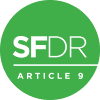The Fund
The Ireland-domiciled and Article 9 Fund aims to achieve capital growth over the long term (five years or more) using the Sustainable Future investment process to invest predominantly in US equities. This process uses a thematic approach to identify the key structural growth trends that will shape the global economy of the future and the fund managers then seek to invest in well run companies whose products and operations capitalise on these transformative changes.

You are able to redeem your investment from the Fund at any time and there is no exit fee for doing so.
"The US is home to some of the world’s most innovative companies. Sustainability considerably lags Europe and the UK and the opportunity for growth over the long term is very strong."
Meet the team
Chris Foster, Simon Clements and Peter Michaelis joined Liontrust in April 2017 as part of the acquisition of Alliance Trust Investments (ATI). Chris joined ATI through the management training programme after graduating with a First Class Honours degree in Economics and Mathematics from the University of Edinburgh. Chris is a CFA Charterholder. Prior to managing funds and ATI for five years, Simon spent 12 years at Aviva Investors where latterly he was Head of Global Equities. Peter has been managing money in Sustainable and Responsible Investment for over 20 years when he was promoted to lead Portfolio Manager at Aviva Investors, before being made Head of Sustainable and Responsible Investment.

Performance
As the share class has been in existence for less than one discrete year as at the previous quarter end, there is insufficient data to provide an indication of past performance.
Current positioning
Top 10 Holdings (%)
Key features of the Fund
The Fund aims to achieve capital growth over the long term (five years or more) through investment in sustainable securities, predominantly consisting of US equities.
The Fund is not expected to have any exposure to financial derivative instruments in normal circumstances, but the Investment Adviser may on occasion, where it deems it appropriate in seeking to achieve the investment objective of the Fund, use financial derivative instruments (namely futures, options and total return swaps) for efficient portfolio management, for investment purposes and/or hedging purposes. Further details are set out under the heading “Use of Derivatives” below. The use of financial derivative instruments may, at times, result in the Fund being substantially invested in short term Money Market Instruments (as described below) and/or cash to support such exposures.
In normal conditions, the Fund invests at least 80% of its Net Asset Value in US equities and the Investment Adviser aims to hold a diversified portfolio of such equities which will not be constrained by industries or the size of issuers. US equities are those which, at the time of purchase, are incorporated, domiciled, listed or conduct significant business in the US. However, the Investment Adviser may decide to hold a more concentrated portfolio at certain times (i.e. where market factors dictate or at times of significant subscriptions and redemptions in the Fund) and it is possible that a substantial portion of the Fund could be invested in cash or Money Market Instruments. In addition the Fund may invest in exchange traded funds (which are classified as collective investment schemes) and other open-ended collective investment schemes. No more than 10% of the Net Asset Value of the Fund will be invested in aggregate in open-ended collective investment schemes. The Fund may invest up to 10% of its Net Asset Value in Real Estate Investment Trusts (“REITs”) domiciled in the US and they are not considered an investment by the Fund in open-ended collective investment schemes but rather an investment in equity securities which are considered transferable securities. The Fund may invest in closed-ended funds domiciled in the United Kingdom and/or the EU that qualify as transferable securities and any such investment will be subject to the relevant UCITS investment restrictions relating to investment in transferable securities. Investment in closed-ended funds will be used where the closed-ended fund aligns to the objectives and policies of the Fund. Investment in closed-ended funds will further be confined to schemes which are considered by the Investment Adviser to be relatively liquid in nature and such an investment shall constitute an investment in a transferable security in accordance with the requirements of the Central Bank. Investment in closed-ended funds is not expected to comprise a significant portion of the Fund’s Net Asset Value and will not typically exceed 10% of the Fund’s Net Asset Value.
The Benchmark is a broad US equity index that represents large and mid-cap equity performance across the US markets. With over 600 constituents, the Benchmark covers part of the free float-adjusted market capitalization in the US.
For more information on the OCF, see our costs and charges page.
Sustainable Investment: Annual Review 2023
Read about the team’s investment performance and investee company engagement in 2023 and their 22 sustainable investment themes.

Fund Manager Insights
 Peter Michaelis
Peter Michaelis

 Multiple authors
Multiple authors

How to invest in Liontrust funds
Key Risks
Past performance does not predict future returns. You may get back less than you originally invested. All investments will be expected to conform to our social and environmental criteria. Overseas investments may carry a higher currency risk. They are valued by reference to their local currency which may move up or down when compared to the currency of the Fund. The Fund may encounter liquidity constraints from time to time. The spread between the price you buy and sell shares will reflect the less liquid nature of the underlying holdings. Outside of normal conditions, the Fund may hold higher levels of cash which may be deposited with several credit counterparties (e.g. international banks). A credit risk arises should one or more of these counterparties be unable to return the deposited cash. Counterparty Risk: any derivative contract, including FX hedging, may be at risk if the counterparty fails. ESG Risk: In reference to any component (where applicable) of a fund's investment process that uses external ESG data, there may be limitations to the availability, completeness or accuracy of ESG information from third-party providers, or inconsistencies in the consideration of ESG factors across different third party data providers, given the evolving nature of ESG. There is no guarantee that an absolute return will be generated over a three year time period or within another time period.
Disclaimer
This is a marketing communication. Before making an investment, you should read the relevant Prospectus and the Key Investor Information Document (KIID) and/or PRIIP/KID, which provide full product details including investment charges and risks. It should not be construed as advice for investment in any product or security mentioned, an offer to buy or sell units/shares of Funds mentioned, or a solicitation to purchase securities in any company or investment product. The decision to invest in a fund should take into account all the characteristics and objectives of the fund (inclusive of sustainability features) as described in the prospectus. Further information can be found here: https://www.liontrust.eu/sfdr. Examples of stocks are provided for general information only to demonstrate our investment philosophy. The investment being promoted is for units in a fund, not directly in the underlying assets. This information and analysis is believed to be accurate at the time of publication, but is subject to change without notice. Whilst care has been taken in compiling the content, no representation or warranty is given, whether express or implied, by Liontrust as to its accuracy or completeness, including for external sources (which may have been used) which have not been verified.







